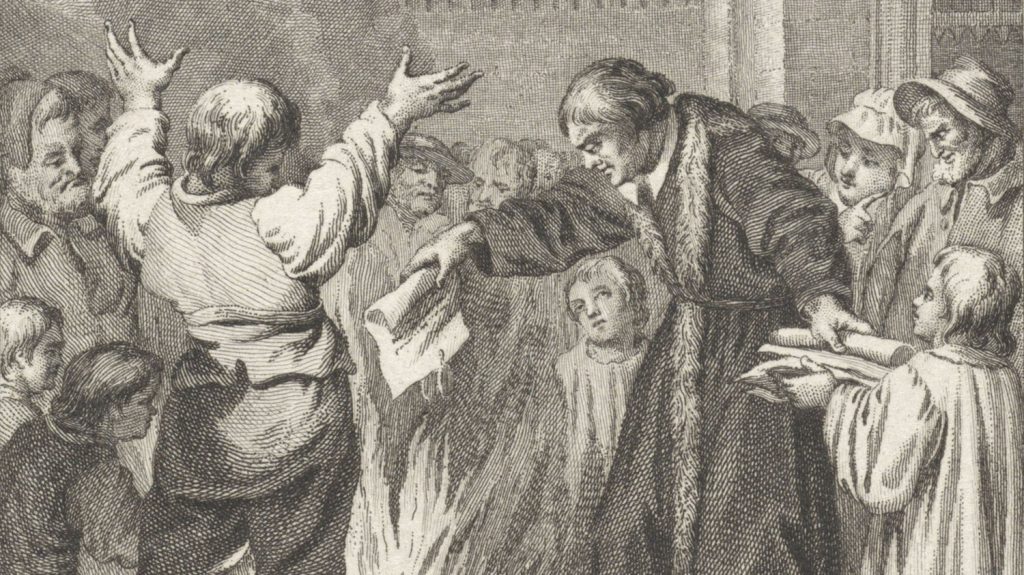Today in 1520, Martin Luther burned his copy of the papal bull Exsurge Domine (‘Arise, O Lord’), which threatened to excommunicate him for teachings which ‘twist and adulterate the scriptures’. In the bull, Pope Leo X condemned Luther for saying that the existence of Purgatory cannot be proved from the Bible, that burning heretics is not the work of the Holy Spirit, and that indulgences are pious frauds. ’Whoever wrote this bull is Antichrist,’ said Luther. Pope Leo returned the compliment by excommunicating Luther the following year.
‘We condemn, reprobate, and reject completely the books and all the writings and sermons of Martin, whether in Latin or any other language… We forbid each and every one of the faithful of either sex… to read, assert, preach, praise, print, publish, or defend them.’ Exsurge Domine, 1520
Thomas Merton, the American monk, mystic and acclaimed spiritual writer, was discovered dead in his room at 4 o’clock this afternoon in 1968 after giving a talk at a conference for Benedictine and Trappist abbots near Bangkok, Thailand. He was 53 years old. He was found with a floor-standing electric fan lying across his chest and a wound to the back of his head. The Thai police said he died of a heart attack, while a later, widely accepted story claimed he was electrocuted by the fan after stepping out of a shower. It is now claimed that he was murdered, possibly by the CIA, because Merton had become a high profile critic of the American war in Vietnam.
John Wesley presumably got rid of all his teacups today in 1748, when he wrote his famous Letter to a Friend Concerning Tea. He believed that tea caused ‘paralytick disorders’, and that the money spent on tea (which was expensive, because of tax) could be better spent on feeding and clothing the poor. He recommended drinking English herbal tea instead.
‘If Tea has already weakened your Stomach, and impaired your Digestion to such a Degree, it has hurt you more than you are aware; it had prejudiced your Health extremely. You have need to abhor it as deadly Poison, and to renounce it from this very Hour.’ John Wesley, 1748
The Swiss theologian Karl Barth, possibly the greatest theologian of the 20th century, died today in 1968 at his home in Basel, Switzerland, the same day Thomas Merton died in Thailand. Barth was famous for his first book, The Epistle to the Romans, which was said to have ‘landed like a bombshell in the playground of the theologians’, but also for his most gigantic work, the Church Dogmatics, which at 6 million words beat even Thomas Aquinas for writing at length about theology.
‘Once the day comes when I have to appear before my Lord, then I will not come with my deeds, with the volumes of my Dogmatics in the basket upon my back. All the angels there would have to laugh. But then I shall also not say, “I have always meant well; I had good faith.” No, then I will only say one thing: “Lord, be merciful to me a poor sinner!”’ Hans Küng quotes Karl Barth in the eulogy at Barth’s funeral
Emily Dickinson, the American poet, was born in Amherst, Massachusetts, today in 1830. She was preoccupied by sickness and death from an early age, and religion became important to her in her early teens, when revival came to Amherst and she was converted. Mortality, eternity, God and the self became abiding themes in her intense poetry.
Because I could not stop for Death,
He kindly stopped for me;
The carriage held but just ourselves
And Immortality.
Emily Dickinson, ‘Because I could not stop for Death’
Image: Rijksmuseum / Public Domain
